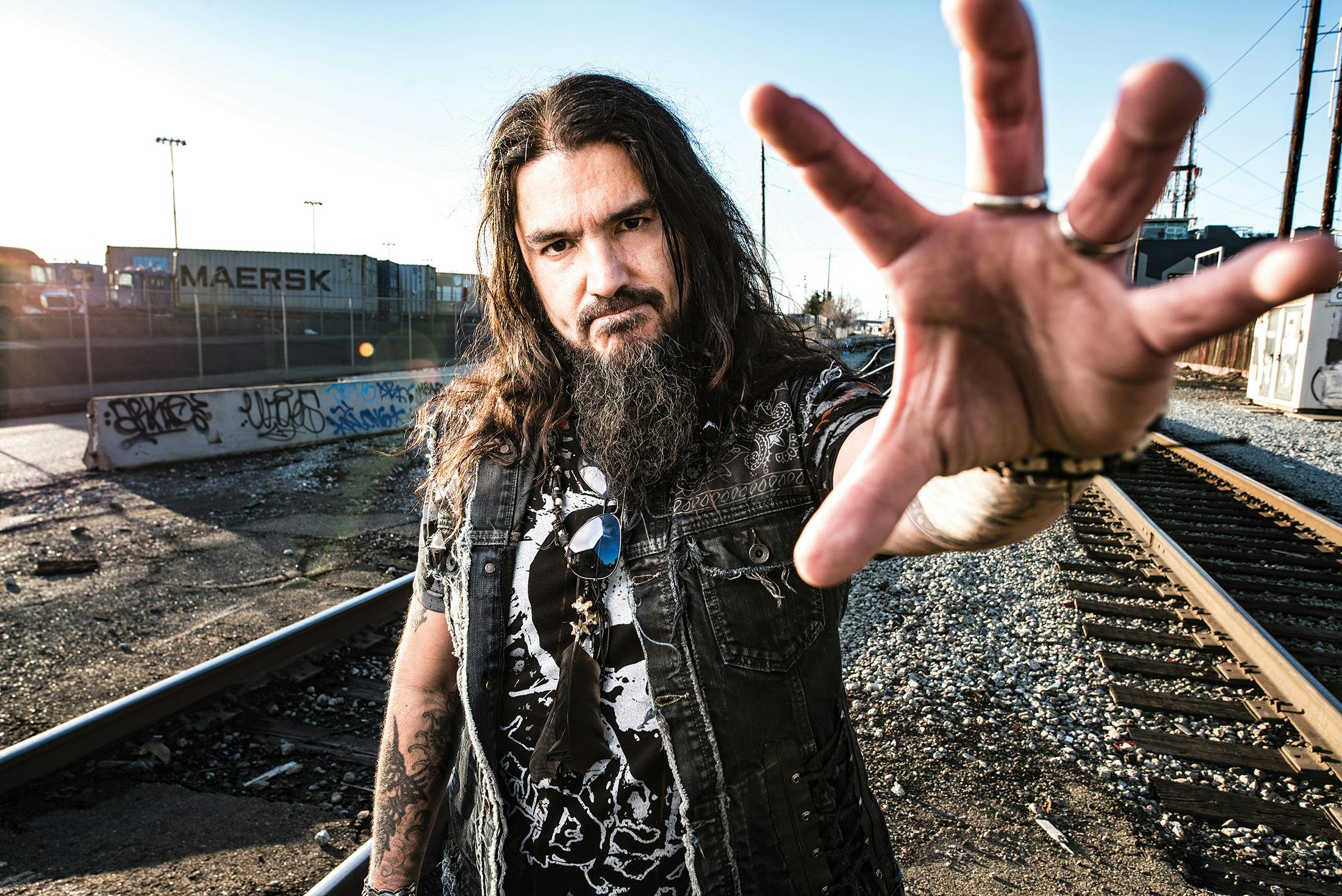How has your mindset changed? Has lockdown been an opportunity to recharge after those 33 years on the road?
“You know, I never really realised what a hermit I was until the whole world went on quarantine. My life has been relatively unaffected. I work from home when I’m not on the road anyway, so it wasn’t some big shock. There have been some really cool things to come out of it. The gyms closed, so my wife and I rearranged our garage to be a home gym. The last thing I want to do is get fat and lethargic, so I’ve been working out five or six days a week and trying to walk my 10,000 steps a day. We put a couch in there, too, and we have Friday or Saturday night date-night with me drinking a vodka and her on a glass of wine. Last weekend we had Duran Duran karaoke, which went on for way too long according to my son. She’s unemployed. I’m basically unemployed. We’re having twice as much sex as we used to. So it’s not that bad – it could be a lot worse.”
You’ve been expanding your musical horizons, too, right?
“I’m going down to the studio five or six times a week. Every Friday since the pandemic started, I’ve been doing this Robb Flynn Acoustic Happy Hour from 3-5pm pacific time. It’s just basically a free show on Facebook. I try to learn two new songs every Friday. I take requests, and I try to play Machine Head songs that have never been played live acoustic. Last week I covered Muse, Tool and Lynyrd Skynyrd. It’s been fucking awesome. The first three or four were horrible – I knew they were – but I knew that if I kept sucking for six weeks I would get past it.
“Also, for the first 20 years of my career, I never took singing lessons. Then I did some about 10 years ago. With these acoustic shows, I’ve been back in contact with my old singing teacher to try and figure out why I can do a three-and-a-half hour Machine Head show, but this clean singing is kicking my ass. It’s been an opportunity to un-learn all the wrong shit and get an opportunity to do things right.”
When it comes to writing more new music – the rage of the current political situation aside – do you think that there might be a reflection of that slower-paced lifestyle and those Friday afternoons singing clean?
“I dunno! A lot of bands have a plan. They know they’re going to do this and that – then they do it. For me, writing music is more like walking into a completely blacked-out room and just trying to find the doorknob to get out. Eventually you do find it, but before that you spend a lot of time going back and forth figuring things out. Until I’m there, it’s impossible to really say!”
Finally, while we wait for a return to normality, how would you suggest metal fans spend their time in the interim?
“I think that everyone should take one hour a day to better yourself – as a husband, a father, a creative, a musician, a writer, whatever. There’s almost certainly one thing that you’ve been putting off for all these years and now you’ve got the opportunity to get it done. It’s all mindset. Yes, there’s shit that sucks, but you can use this time. Maybe we were going too fast and this is the world saying ‘slow down’.
“Politically, though, it’s a chance to wake up. For the last three years, it’s been like America is in a coma, just in shock. There have been authoritarian leaders elected elsewhere, too. That people have been coming out of that and really saying ‘Fuck this shit!’ is a great thing. I encourage everybody to go out to those protests and take part. That doesn’t need to be in your home town, either. Take care, but take the train or get in the car and go be a part of it. This is a moment in history, and you want to be on the right side of it. It’s going to reverberate for decades to come, and you will want to have been there.”
Civil Unrest is out now via Nuclear Blast.
Read this next:
